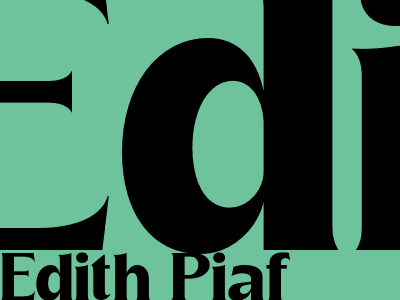
The Incomparable Songbird: A Comprehensive Exploration of Edith Piaf's Life and Legacy
A Voice that Transcends Time
Edith Piaf, the legendary French chanteuse, left an indelible mark on the hearts of music lovers worldwide with her raw, emotionally charged performances.
Early Life and Influences
Born Édith Giovanna Gassion in Paris in 1915, Piaf faced poverty and adversity from a young age. She began singing on the streets at 14, honing her unique style influenced by cabaret and Gypsy music.
In 1935, she met songwriter Raymond Asso, who recognized her exceptional talent and became her mentor, shaping her signature melancholic sound.
Rise to Stardom
Piaf's breakout came in 1940 with the release of "La Vie en Rose," which became her anthem and propelled her to international stardom.
Over the next two decades, she recorded countless hits, including "Hymne à l'Amour," "Non, je ne regrette rien," and "Milord," captivating audiences with her intimate and visceral delivery.
Personal Struggles and Triumphs
Piaf's personal life was marked by both triumph and tragedy. She experienced several failed relationships and was plagued by addiction and health issues.
Despite her challenges, she maintained a strong will and continued to perform until her untimely death from liver cancer in 1963.
Legacy as a Cultural Icon
Edith Piaf's influence extends far beyond her music. She became a symbol of resilience and the indomitable human spirit.
Her songs have been translated into countless languages and continue to resonate with audiences of all ages, inspiring countless artists and captivating hearts around the globe.
In-Depth Analysis
Vocal Technique and Style
Piaf's voice was characterized by its raw and emotional intensity. She possessed an exceptional vocal range and used vibrato and melisma to create a highly expressive style.
Her performances were often deeply personal and cathartic, conveying a profound understanding of human suffering and resilience.
Influences and Inspirations
Piaf's music drew inspiration from diverse sources, including French chanson, Gypsy folk, and American jazz. She was particularly influenced by the work of French poet Jacques Brel and singer Yves Montand.
Her songs often reflected her own experiences with love, loss, and heartbreak.
Cultural Impact
Edith Piaf played a pivotal role in shaping the French cultural landscape. She helped to popularize chanson and made French music accessible to audiences around the world.
Her music has inspired countless artists, including Édith Cresson, Barbara, and Amy Winehouse, and continues to be celebrated as a timeless masterpiece.
Conclusion
Edith Piaf's legacy as a legendary chanteuse is secure. Her raw voice, deeply personal songs, and indomitable spirit have left an unforgettable mark on the music world.
Her songs continue to inspire and captivate generations, reminding us of the resilience of the human spirit and the transformative power of art.